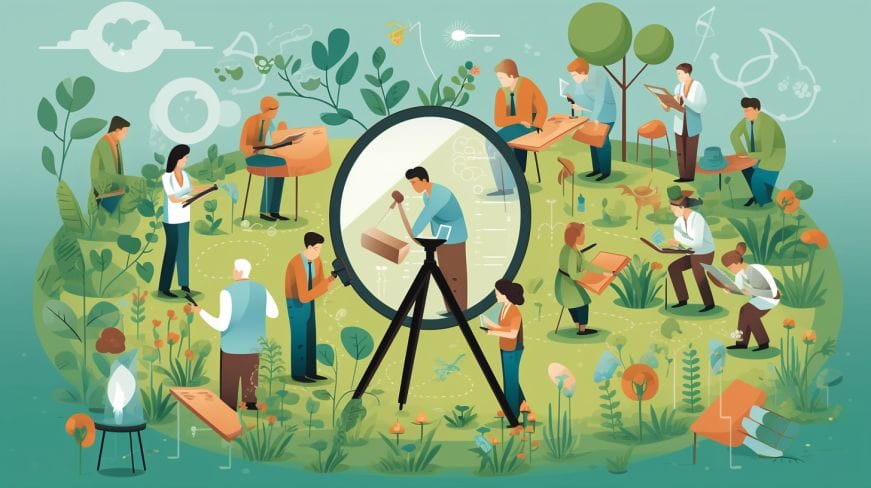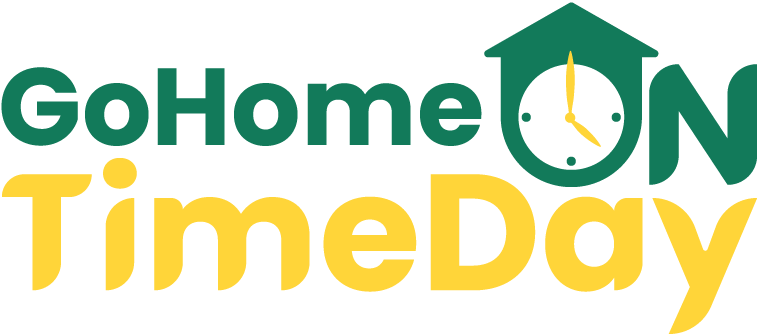Hello everyone! At the moment, I’m on a quest to discover “what are my career strengths?” It’s an exhilarating adventure, but sometimes it can leave me a bit perplexed.
I’ll explore my natural talents and passions and use self-assessment to dig deep. This is about aligning my career with my strengths and validating my findings.
Ready to join me? Let’s get started. It’s a step towards mastery; trust me, it will be empowering!
Key Takeaways
- Knowing your strengths is crucial for professional success and career satisfaction.
- Both hard and soft skills matter and should be recognized and developed.
- Aligning your strengths with professional duties can significantly boost work satisfaction and productivity.
- Identifying your professional strengths through reflection, market research, and self-assessment tools can guide your career development and expand your options.
Understanding the Importance of Knowing Your Strengths

I’ve come to realize that being aware of my strengths plays a pivotal role in my professional success. It’s not just about hard skills but also soft skills; both significantly matter.
When I align my strengths with my professional duties, it boosts my work satisfaction exponentially.
The Role Of Strength Awareness In Career Success
Throughout my career, I’ve found that knowing my strengths plays a crucial role in achieving success. Strength awareness gives me an edge in developing hard and soft skills, critical components of a successful career. It’s empowering to know your strengths and use them effectively.
- It boosts my confidence, making me more assertive and decisive.
- It enhances my productivity by focusing on tasks that align with my abilities.
- It aids in shaping my career path, steering me towards roles where I can excel.
- It increases job satisfaction, as I get to do what I love and am good at.
- It improves my resilience by leveraging my strengths to overcome challenges.
Understanding my strengths isn’t just self-knowledge; it’s a career success strategy.
Good at anything can be a potential asset, and it’s important to take the time to figure out what you’re good at and what qualities could help you succeed. Even those unexpected qualities could help you in the long run.
Hard Skills Vs. Soft Skills: Both Matter!
In my professional journey, I’ve discovered that hard and soft skills are equally vital, with each set contributing significantly to my overall effectiveness.
Hard skills, those technical capabilities honed through education and experience, form the foundation of my aptitude in my chosen career path. These hard skills are essential for performing tasks, such as those required for a fashion designer in a competitive industry like the fashion industry. Knowing what you’re good at is a fundamental step in pursuing success.
But my soft skills, interpersonal talents, and emotional intelligence set me apart. They’re the strengths that allow me to connect, collaborate, and lead effectively. It’s not just about what I am good at in terms of concrete abilities; it’s also about what you are good at when it comes to understanding and working with people.
Understanding the balance and interplay between these strengths and personality traits is crucial. Recognizing my aptitude in both these areas has helped me excel in my career and guided me toward opportunities where I can utilize my unique blend of skills to the fullest. Sometimes, it’s the things you’re good at that you’ve never even considered exploring.
Boosting Work Satisfaction: Aligning Strengths With Professional Duties
While it’s crucial to identify my strengths, I’ve found that aligning those strengths with my professional duties significantly boosts my work satisfaction. When I match what I’m good at professionally with my day-to-day tasks, positivity seeps in.
But why does it matter?
- It fuels passion: I’m more excited to take on tasks I excel in.
- It fosters growth: I’m inspired to enhance my strengths.
- It increases productivity: I’m efficient when doing what I love.
- It enhances career satisfaction: I find deeper meaning in my work.
- It opens new career options: Aligning strengths can lead to promotions or even career shifts.
Understanding and leveraging my strengths isn’t just beneficial—it’s transformative. It propels me towards mastery, boosting work satisfaction.
Things to consider when determining your strengths include questions to ask yourself, such as “What am I good at?” and “What are you good at?”
It’s essential to think deeply about these aspects of your personality that you had never considered strengths. Sometimes, strengths might surprise you, and it’s important not to dismiss aspects of your personality that others have recognized as valuable.
Identify Your Natural Talents and Passion

Let’s move on to understanding our innate abilities and passions.
We often overlook how our hobbies can become our strengths in the professional world.
If observed closely, complaints and feedback can also reveal what we’re naturally good at in a professional setting.
Highlighting Hobbies That Can Translate Into Professional Strength
I’ve found that pinpointing hobbies that align with my innate ability and passions is a key step in identifying my professional strengths. Hobbies aren’t just activities we engage in for fun during spare time; they can be the key to unlocking our potential in professional settings.
There are certain hobbies I’ve been highlighting that can translate into professional strength:
- Photography: This can improve visual skills and attention to detail, making you really good at taking meticulous observations that can be valuable in fields like forensics or design.
- Reading: Enhances comprehension and expands vocabulary, a valuable skill when crafting a persuasive cover letter or engaging in professional correspondence. Being well-read can improve your ability to communicate effectively with colleagues and superiors.
- Coding: Ignites problem-solving skills and logic, helping you develop a knack for finding solutions to complex challenges. This can be a highly valuable skill in the tech industry, where there are no right or wrong answers, only efficient and inefficient solutions.
- Volunteering: Cultivates empathy and teamwork, so if you’re someone whose friends say you’re always great to work with, this hobby may enjoy a higher chance of making you a valuable team player in any professional setting.
- Cooking: Enhances creativity and precision, making it easier to succeed in the kitchen and impress your guests.
Using Compliments And Feedback To Identify Natural Talents
To uncover my natural talents and passions, I often turn to compliments and feedback from others as a reliable source of insight. People who know me well, both personally and professionally, have a unique outside perspective on my skills and strengths. They can offer an unbiased view, highlighting talents I might overlook.
When I receive a compliment, I don’t just take it lightly. I ponder on it, as it might indicate an innate ability. Similarly, feedback, whether positive or negative, helps me identify areas in which I excel or need improvement. Listening to this feedback is essential to identify inborn talent and continually grow and improve.
This practice has proved beneficial in my professional development. Instead of focusing solely on self-perception, I look to the outside opinion to really help me identify what I’m good at.
In a perfect world, we’d always align our perceptions with reality, but that’s not always true. Therefore, even if you don’t necessarily think you’re the best at something, you’ll be able to recognize your strengths when they’re pointed out by others.
Pinpointing What You’re Naturally Good At In Professional Settings
While I’m tackling tasks at work, it’s during those moments of effortless success that I can pinpoint what I’m naturally good at in a professional setting. It’s not always easy to identify where my strengths lie.
I’ve found it helpful to:
- Take an aptitude test or a quiz to find what my inborn talent might be.
- Reflect on tasks I’ve completed with ease and joy.
- Seek feedback from colleagues and superiors.
- Consider what I’d choose as a career if money was no object.
- Identify tasks that make time fly by because I’m so immersed.
Self-Assessment: Right Questions to Ask

Now, let’s tackle self-assessment by posing the right questions.
Reflect on your past victories – what really made you stand out?
Or, think about those tasks where you’re so engrossed that time slips away – what might these activities suggest about your professional abilities?
Key Questions To Clarify Your Professional Strengths
I’m about to delve into the self-assessment process, focusing on key questions that can help shed light on my professional abilities. Pursuing mastery can be challenging and stimulating, but it all begins with asking the right questions.
- What am I good at? This is the cornerstone question that can reveal my proficiency in various areas.
- What tasks or activities ignite my passion? The things that make me feel alive often indicate where my abilities lie.
- Where do I excel professionally? Pinpointing it is crucial.
- Which tasks seem effortless to me? This can hint at my natural abilities.
- How do others view my skills? External feedback can provide a valuable perspective.
When people ask and reflect on these questions, it becomes a powerful tool for self-discovery. It’s difficult to answer these questions, but they’re passionate about personal and professional growth, want to learn, and strive to improve; it’s worth the effort.
Looking At Past Successes: What made you shine?
In this next section, I’ll examine past successes and try to identify what exactly made me excel in those situations.
Looking at these successful moments professionally, I’ll ask myself: What made me shine? Was it my ability to lead a team, my knack for solving complex problems, or perhaps my capacity for innovative thinking?
The key lies in understanding that when you’re good at something, it often leads to success. Hence, I can better understand my professional abilities by identifying these past successes.
It’s an essential self-assessment, requiring me to ask the right questions. Only then can I truly grasp what I’m good at professionally and further harness those skills for future triumphs.
In your final thoughts, remember that thinking about your abilities is the first step to feeling empowered in your career. Even when you don’t always feel like you’re excelling, remember that it won’t matter in the long run, and that’s okay.
Considering Tasks Where You Lose Track Of Time
Let’s delve into my memory’s vault to identify those tasks where I’ve completely lost track of time, as they’re likely areas of my professional forte. These are activities where my comfort zone and unique talents intersect, and they play a pivotal role in considering a career.
Here’s a quick brainstorming exercise:
- Recall certain tasks where hours felt like minutes.
- Remember instances where I was so engrossed that I forgot to eat or drink.
- Identify duties I was eager to start and disappointed to finish.
- Think back to tasks I’d do even if they weren’t part of my job.
- Consider tasks where I found a rhythm, a flow that was hard to break.
These reflections can guide me toward a career that aligns with my abilities.
Choose a Career that Draws on Your Strengths

Picking a career that suits my strengths is crucial in professional development. It’s not just about looking at what I’m good at but also aligning those skills to potential professions and understanding if the market values them.
Using my competencies wisely can open a myriad of career options that I mightn’t have thought of before.
Aligning Your Core Skills And Strengths With Potential Professions
I will guide you through aligning your core skills and abilities with potential professions, ensuring you’re choosing a career that truly draws on your abilities. It’s about finding the right job where your abilities may shine.
To start, make a list of abilities you possess. Then, begin to uncover which professions require these skills.
Here’s how:
- Reflect on past successes and what skills contributed to them.
- Seek feedback from those who know you professionally.
- Consider any accolades or recognition you’ve received.
- Think about tasks that energize you.
- Identify skills you’re eager to develop further.
This process is about aligning your core abilities with potential professions, and it’s designed to help you excel and find fulfillment.
Probing The Market: Are Your Skills In Demand?
So, how can we probe the market and determine if your distinct list of skills is in demand?
It’s all about research and feedback. What do you think your strengths are? What’re you good at? What do people compliment you on? Knowing your strengths and understanding how they align with your dream job is important.
Next, pay attention to the feedback you hear. If people often comment on your excellent communication skills, consider careers where this is vital.
Using Competencies To Leverage Your Career Options
My professional proficiency and personal abilities give me numerous job opportunities, and choosing a path that draws heavily on these assets is essential.
Here’s how I leverage my abilities to expand my job opportunities professionally:
- I took a quiz to identify my core proficiency, which was enlightening.
- I continuously enhance those proficiencies, believing in my potential for growth.
- I intentionally seek opportunities that allow me to use my abilities, thus gaining satisfaction and mastery.
- I’m not afraid to venture outside my comfort zone and learn new skills that complement my proficiencies.
- I regularly review and reassess my career path, ensuring it aligns with my abilities and passions.
Use these steps as a roadmap to navigate your professional journey. Remember, your proficiencies are your leverage for better job opportunities.
How Can I Use My Strengths in a Psychology and Technology Career?
When pursuing careers in psychology and technology, you can effectively utilize your strengths to excel. Identify your unique skills and leverage them to contribute meaningfully in this multidisciplinary field. Whether it’s employing data analysis to uncover psychological patterns or using technology to enhance therapy sessions, blending your strengths can lead to a fulfilling and successful profession in psychology and technology.
Validate Your Findings: Quizzes and Psychometric Tests

Now, let’s move on to validating what we’ve identified so far.
We’ll look at some recommended quizzes that could help evaluate our professional abilities.
Then, we’ll explore how psychometric tests might offer deeper self-insight.
Lastly, we’ll touch on the role of life and business coaching in further identifying our abilities.
Recommended Quizzes to Evaluate Professional Strengths
I’ve found that online quizzes and psychometric tests can greatly help identify professional abilities. These resources offer insights into what I’m good at and the qualities that could help me succeed in my field. However, it’s important to understand that these tests are just guides to self-discovery.
Here are some recommended tests:
- 16 Personalities: This comprehensive personality test can give you a deep understanding of your abilities and weaknesses.
- StrengthsFinder 2.0: This test focuses on identifying your top five strengths.
- VIA Character Strengths: This test helps uncover your core character strengths.
- Career Strengths Test: This measures seven essential qualities for career success.
- The Big Five Personality Test: This test can help understand the correlation between personality and job satisfaction.
How Psychometric Tests Help In Gaining Self-insight
In my journey of self-discovery, I’ve found two key tools to be particularly insightful: quizzes and psychometric tests, which provide a unique blend of introspection and analysis.
These tests not only energize my thought process but also make me dive deep into self-reflection, providing a level of immersion that allows me to identify the common thread that runs through my professional life.
Through this identification, I attain a clearer understanding of my qualifications and where I can excel. Psychometric tests, in particular, offer a unique lens through which I can see my full potential.
They aren’t mere personality assessments, but rather, they’re a tool for self-understanding. They help me validate my findings and craft a roadmap towards my professional self-discovery.
The Role Of Life And Business Coaching In Identifying Strengths
I can’t underestimate the value of life and business coaching, as it’s played a significant role in identifying my top five professional abilities. My coach has used various tools to uncover my inborn talent, the things that make me tick, and helped me understand what I’m truly good at.
This process hasn’t just validated my findings from quizzes and psychometric tests but opened my eyes to my mindset and how it influences my abilities.
Here’s what I’ve learned:
- Coaching brings out abilities that might surprise you.
- It provides different perspectives.
- It can identify abilities that can be honed further.
- It encourages a mindset of continuous learning.
- It helps to align personal values with professional skills.
The journey to mastery is a process of self-discovery, and coaching has been instrumental in mine.
After diving into your professional strengths, learn how leaders channel their expertise to coach and nurture growth in others.
Frequently Asked Questions
How Can I Improve My Professional Weaknesses?
To improve my professional weaknesses, I’m focusing on self-awareness and feedback. I’m setting specific, measurable goals and seeking mentorship. I’m also investing in continuous learning and training to strengthen my skills.
What Are Some Common Misconceptions About Determining Professional Strengths?
A common misconception is that professional abilities are solely based on skills. They’re not. They’re also about leveraging your unique qualities, like intuition or empathy, which can’t be quantified but make a huge difference.
How Do I Deal With Negative Feedback About My Professional Skills?
When I receive negative feedback, I don’t let it get me down. Instead, I see it as an opportunity to learn and improve. I listen, reflect, and then apply changes to enhance my professional skills.
Can I Change My Career if I’m Not Passionate About My Current Job?
I can change my career. If I’m not passionate about my current job, finding something that ignites my interest is crucial. Life’s too short to stay stuck in a job I don’t love.
What Should I Do if My Professional Strengths Do Not Align With My Passions?
If my professional abilities don’t match my passions, I’d explore ways to incorporate my interests into my current role. If that’s not possible, I’d consider retraining to align my career with what I love.
Conclusion
Knowing what I’m good at professionally requires a deep understanding of my strengths and natural talents. I can ask the right questions through self-assessment and choose a career that draws on these strengths.
Quizzes and psychometric tests can validate my findings, confirming my professional prowess.
Identifying my professional strengths isn’t just beneficial; it’s crucial for my career growth and satisfaction.

